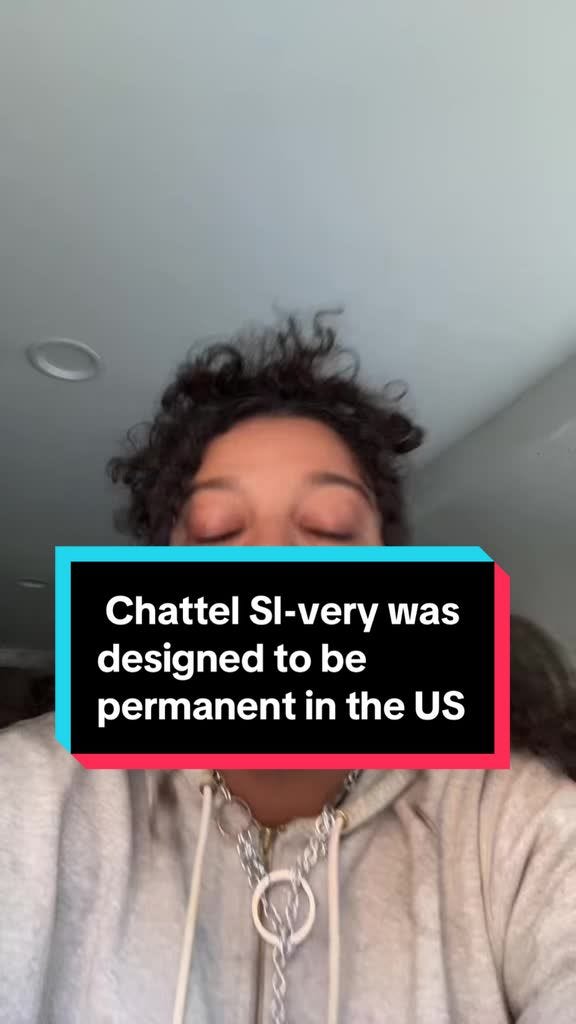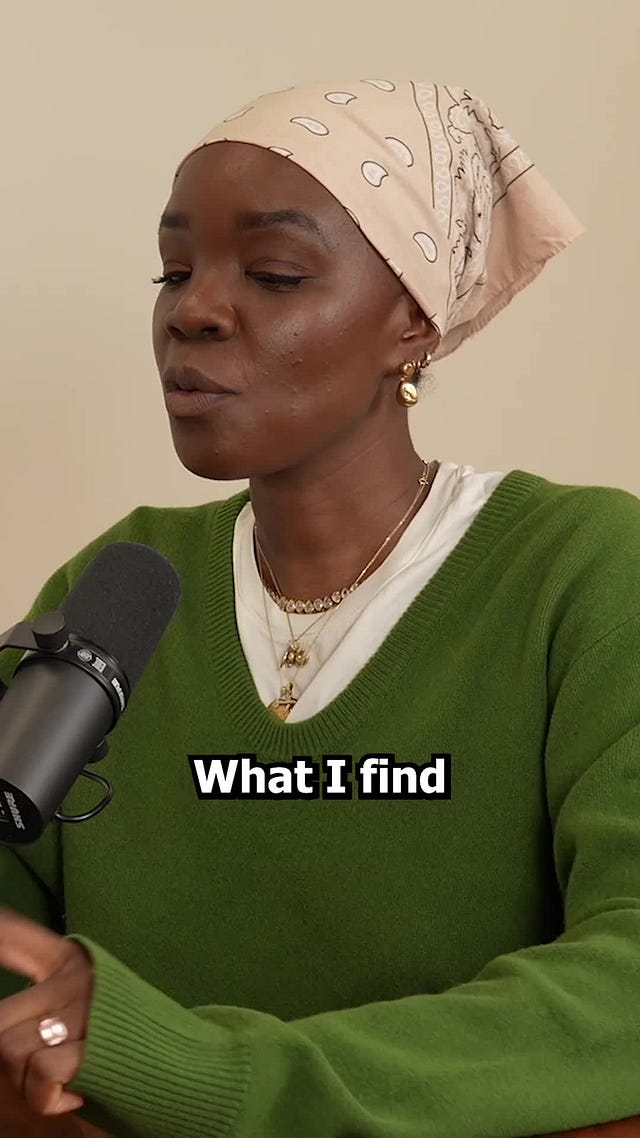How Liberal Finger-Pointing Reinforces White Supremacy
An assessment on fashion, racism vs. classism, and labeling rural voters as "dumb"
I’ve been working on two pieces:
Piece 1: An assessment of Cultish: The Language of Fanaticism by Amanda Montell and The Glow: A Novel by Jesse Gaynor.
Piece 2: Dealing with body image in a world where conservative, puritan, respectability politics are being more normalized.
While working on these pieces, I think it’s important to address a reoccuring conversation I’ve been hearing: the argument of racism vs. classism.
Many white liberals frame classism and racism as two separate issues, like cousins or distant neighbors. But as generations of Black people have always known, racism and classism are twin sisters. When one takes a break, the other clocks in. They’re inseparable and designed to work in tandem, especially in America. They play a role in respectability politics, jobs, housing, fashion, online engagement, and so on.
White liberals love “classism” because calling other white people poor and stupid is easy. Whiteness implies prosperity and wealth, so not having it makes poor whites easy punching bags.
What’s hard is reckoning with the fact that white supremacy is the spine that holds it all together. It’s not just that Black people have been excluded from generational wealth. It’s that when they do succeed, they’re still denied access, still told “no,” still viewed as the exception rather than the expectation. Classism becomes the safe scapegoat when racism feels too raw, too close to home.
Writer, professor, and sociologist Tressie McMillan Cottom explains this perfectly in a conversation with Trevor Noah on his What Now? podcast.
She explained that white liberals live in a delusion that classism and racism operate on separate wings of the house similar to how English people do. It’s a fantasy that allows them to maintain their whiteness while claiming they are “not racist.” But the contradiction is sharp and harmful. The two systems don’t just overlap, they reinforce each other.
Let me explain this in Tommy Hilfiger
Another example of “classism” vs. “racism” is the recent episode from The Cutting Room Floor where Brendon Babenzien—founder of Noah and former creative at Supreme—sparked a wave of discomfort with his sharp resistance to calling Noah a “streetwear” brand. He emphasized that because Noah makes cashmere sweaters and high-quality garments, the brand exists outside the bounds of streetwear. But this kind of logic reveals more than just a design philosophy, it reveals the racial tension baked into the fashion industry’s ongoing classism vs. racism conversation.
The same exact thing happened with Tommy Hilfiger. Tommy was seen as "country club” clothes that were inherently “out of scope” for Black people, which is classism (and cloaked racism because country clubs are inherently racist but coded as classist because that’s more socially acceptable.)
As more Black people started to afford and wear Tommy Hilfiger, the “rumor” from Tommy Hilfiger was “I don’t want minorities wearing my sh*t.”
Streetwear has always been about more than sneakers and hoodies. It’s about rebellion, identity, and cultural power—particularly from Black and brown communities who created it. So for someone who helped shape Supreme, arguably one of the most influential streetwear brands in history, to now say, “I’m not doing that anymore,” reads as more than just aesthetic evolution. It’s racially coded. It suggests that now that the brand has matured and embraced “luxury” elements like cashmere, it can shed the streetwear label—because streetwear, by implication, is juvenile, unsophisticated, or low-class.
Whether or not you personally define Noah as streetwear, the subtext of Babenzien’s remarks is clear: as his brand grows closer to traditional (read: white) luxury, he feels the need to disassociate from the very culture that helped build his credibility.
Stop dismissing autonomous adults as brainwashed
As we talk about the racism vs. classism discussion, I see more and more liberal white people saying that rural Trump voters are “too dumb” to know what’s good for them.
In the book Cultish: The Language of Fanaticism, Amanda Montell makes a compelling point, that calling someone “brainwashed” can be a way of stripping them of agency. It implies they’re mindless, incapable of independent thought, and ultimately excuses them from the consequences of their choices. The gateway into a cult is almost always a belief the person already held or something that resonated, felt right, or reaffirmed a worldview they were already invested in.
That nuance matters, especially when we talk about Trump voters.
Labeling Trump supporters as brainwashed imbeciles isn’t just inaccurate, it’s dangerous. It absolves them of responsibility and paints them as victims of a political spell rather than willing participants in a racist, classist ideology. These people weren’t tricked; they were affirmed.
What Trump offered them was permission to reimagine Jim Crow. A return to the antebellum fantasy of whiteness as wealth, dominance, and divine order. They want those systems back, not because they’re hypnotized, but because they’ve been told those systems worked for them.
Ida B. Wells put it perfectly in her speech “Lynch Law in America:”
It is not the creature of an hour, the sudden outburst of uncontrolled fury, or the unspeakable brutality of an insane mob. It represents the cool, calculating deliberation of intelligent people who openly avow that there is an “unwritten law” that justifies them in putting human beings to death without complaint under oath, without trial by jury, without opportunity to make defense, and without right of appeal.
Calling their behavior the “cool, calculating deliberation of intelligent people” emphasized that these weren’t people acting on blind anger or unaware of their actions. The acts of lynch mobs were strategic, planned, and organized in the same way our politics are today.
So no, they’re not too dumb to know better. They knew what they were voting for. And that’s the problem.
The myth of the uneducated rural white people
I saw this delusion of the brainwashed rural voter reiterated by influencer
, a wealthy New Yorker who I originally followed because of her massive collection of luxury bags. In her post, she talked about the “dad in Middle America,” suggesting he doesn’t care about her rights or her gay friends’ rights, and that he only votes in his best interest to feed his family.She goes on to say she felt “sorry” for these rural voters who’ve been “duped” and “gaslit.” Basically implying that these voters are too uneducated to know what’s good for them and I couldn’t disagree more.

 Tiktok failed to load.
Tiktok failed to load.Enable 3rd party cookies or use another browser
Rural white Americans are not stupid. They know exactly what they’re doing. They may not have advanced degrees or the best media literacy, but they’re not devoid of reason, or internet research, or intuition for what’s right. Saying they’re too ignorant to vote “correctly” removes them from accountability. It gives them a soft pass. But these are people who, in many cases, actively choose whiteness over justice.
Aside from the fact that the conversation ignores the working-class Black and brown communities who do care about women’s rights and LGBTQ+ rights, because our survival has always been tied to collective liberation, the deeper implication is that classism is the issue and these voters were too stupid to vote in their best interest.
And that’s the heart of it: whiteness is the glue holding Trump supporters together. Rich white people want to protect their power and money (no matter how corrupt). Poor white people want access to it, and they’re told that the only thing standing in their way is Black and brown folks. The few Black and brown Trump supporters? Many of them are sold on proximity to whiteness, clinging to the idea that their vote might buy them some distance from the stereotypes that burden the rest of us.
Whiteness, in America, is framed as a shortcut to prosperity. It doesn’t matter how many bankruptcies, DUIs, or failed business ventures are in your past—whiteness will deliver. So yes, many people voted against their own best interest. But why read the fine print when every generation before you said your whiteness would always be enough?
That’s the story and they’re sticking with it!
Middle America isn’t stupid. It’s entitled. It’s deeply invested in a myth of superiority that says even the poorest white person is better than the most successful Black one. And until we stop coddling that entitlement and start naming it for what it is—a desperate, ugly attempt to preserve a broken hierarchy—we’ll keep having the same conversations in circles. We'll keep mistaking willful ignorance for lack of education.
And most importantly, we'll keep asking the wrong question. Because the real issue isn’t that they “don’t know better.” It’s that they do—and they chose whiteness anyway.




